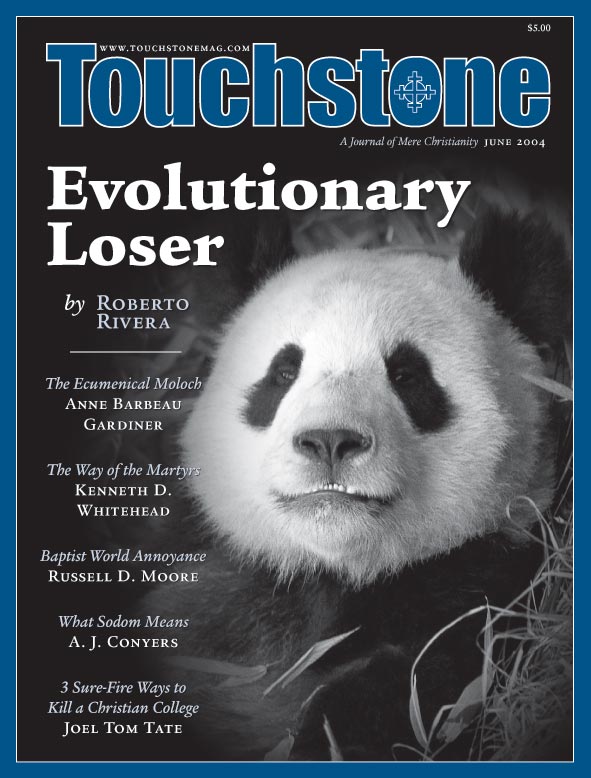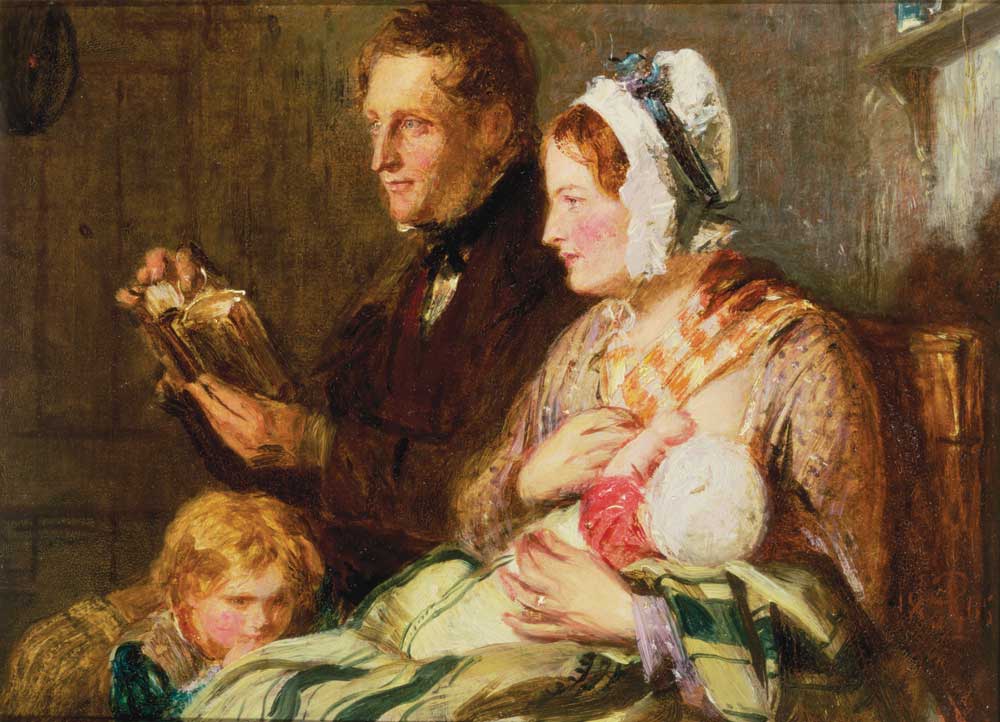Servants of the Day
It is not decorous to insult graduating seniors at commencement. But that is what the typical speaker does. There he stands on the dais, a picture of impudence, telling the assembled young people that they will be the Leaders of Tomorrow. So it is that all the crimes and follies that are to come are laid to the charge of our graduates even before they have the opportunity to commit them.
He cannot be in earnest. He knows full well that not ten miles away, at (to take a well-known example) East Podunk University at Yahoo Springs, the red-eyed graduates are likewise being urged to assume Tomorrow’s leadership, as Tomorrow will not oblige us by arriving on its own, but must be haled out of its den in chains if need be, dragging its scaly claws and snorting its temporal fire.
From coast to coast, in shrinking cities and in sod-carpet suburbs and on recycled farms, the future future of America is instructed by the present future of America, while the past future of America nods like Zeus, in fact like many thousands of Zeus, that they must be the Leaders of Tomorrow. And I imagine just such fervor and just such intelligence in swarms across the tundra of Labrador or the icy cliffs of Norway, Leaders of Tomorrow all, tumbling their way to the sea.
Our nation needs no Leaders of Tomorrow. We are stuffed with them. We could build a giant warren every day for a year and still trip over Leaders of Tomorrow, especially in the holes around State Capitols and School Offices, where the shelter and provender are particularly good. We need rather men and women who honor the past, who do whatever may be their duty now, and who wait with hope for a salvation that is not theirs to bring. We need Obedient Servants of the Day.
It is a funny thing about Tomorrowers: When the action finally comes, they are the last to be ready for it. I suppose there are two principal ways of living in the future. The first is to be slack and supine now. The foolish virgins who never bought oil for the Bridegroom’s arrival no doubt thought they could do so Tomorrow. They ignored the past—for the Bridegroom’s coming had been foretold. They did what they pleased in the present, and, in their own minds, they arranged Tomorrow so that they would manage to have the lamp oil just in time. They could master time as from above.
Maybe those foolish virgins would not be considered proper Leaders of Tomorrow; it does seem that they paid little attention to their resumés. But are they really so different from the practitioners of the second way of living in the future—to be everlastingly scheming now? Is that not rather a more insidious form of slackness? So it was with the man who built the granary, thinking to retire upon the proceeds. He retired all right: His life was required of him the very night he thought Tomorrow was settled.
“Take no thought for the morrow,” says Jesus, not because we are to seize the day and pluck its delicacies, but because “today has trouble enough of its own.” Today is our business, and we ought to mind it. Tomorrow is the Lord’s, as will be the final battle that one unknown Tomorrow must decide.
Past & Future
Conservatives are derided for living in the past, but at least the past has existed, has had a local habitation and a name, while the future remains an airy nothing, its pursuit a chasing of the wind. To puff out one’s little chest as a Leader of Tomorrow, then, is to give oneself over to empty imaginations, to idolize them, to pretend that oneself, a scrap of hide and a little bit of brain, is the Lord of time. Thus, there is no man so tossed by the fads of the day than is a Leader of Tomorrow.
Antiochus IV was a Leader of Tomorrow: He foresaw that there must be one religion for one Greek world, and in his cosmopolitan haste he caused the statue of Zeus to be erected in the Temple, in the very Holy of Holies. God foresaw otherwise, and raised up Judas Maccabeus, whose life surely proves that if you really want to be an iconoclast, devotion to your sacred heritage will provide you with plenty of work. As for Antiochus, in a chilling compression of temporal order, worms devoured his body—before he died.
Now is the acceptable time, now is the day of grace; today we hear the voice of the Lord, nor let us harden our hearts against it. They who cherish what has been handed over to them, who humble themselves to the sweet hard work of ordinary life, who watch like sentinels for the dawn—these, the Obedient Servants of the Day, will be ready when the Morrow comes like a thief in the night, while all the rest as in the days of Noah will be buying and selling and marrying and giving in marriage even as the floodwaters break over their heads.
Anthony Esolen is Distinguished Professor of Humanities at Thales College and the author of over 30 books, including Real Music: A Guide to the Timeless Hymns of the Church (Tan, with a CD), Out of the Ashes: Rebuilding American Culture (Regnery), and The Hundredfold: Songs for the Lord (Ignatius). He has also translated Dante’s Divine Comedy (Random House) and, with his wife Debra, publishes the web magazine Word and Song (anthonyesolen.substack.com). He is a senior editor of Touchstone.
bulk subscriptions
Order Touchstone subscriptions in bulk and save $10 per sub! Each subscription includes 6 issues of Touchstone plus full online access to touchstonemag.com—including archives, videos, and pdf downloads of recent issues for only $29.95 each! Great for churches or study groups.
Transactions will be processed on a secure server.
more from the online archives
calling all readers
Please Donate
"There are magazines worth reading but few worth saving . . . Touchstone is just such a magazine."
—Alice von Hildebrand
"Here we do not concede one square millimeter of territory to falsehood, folly, contemporary sentimentality, or fashion. We speak the truth, and let God be our judge. . . . Touchstone is the one committedly Christian conservative journal."
—Anthony Esolen, Touchstone senior editor











